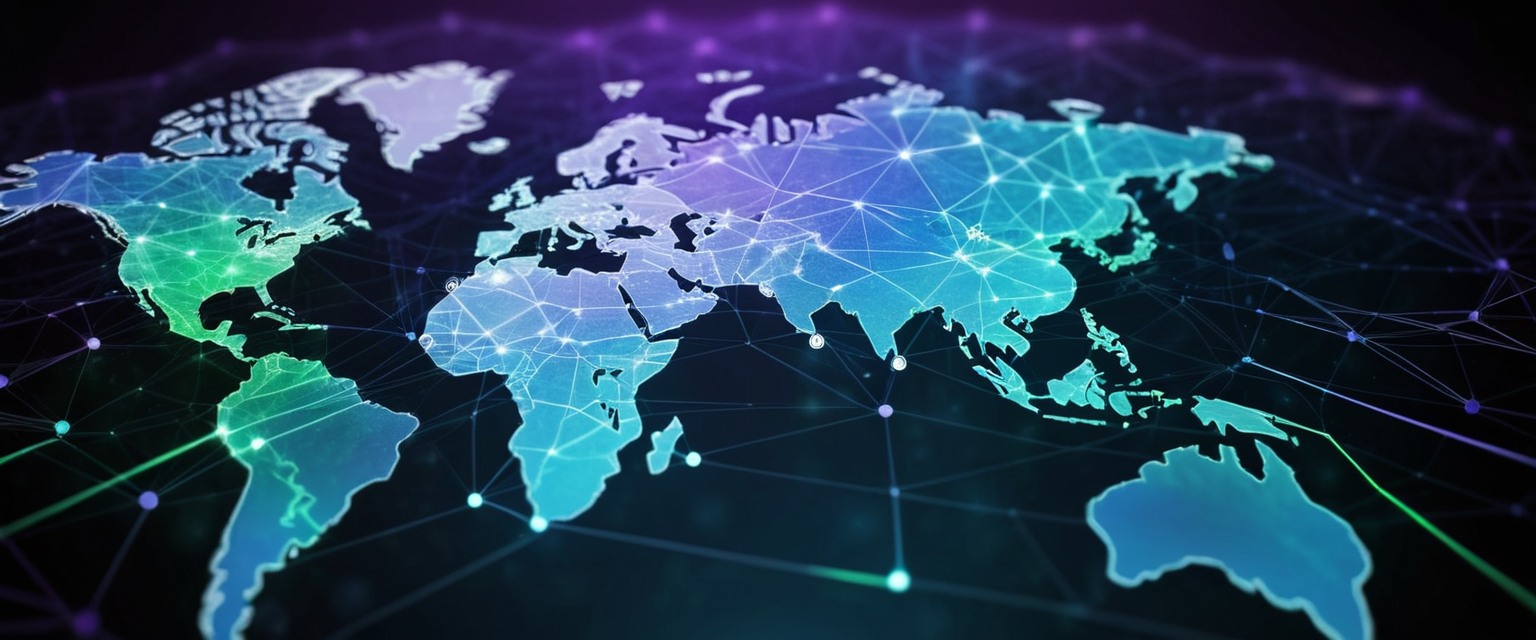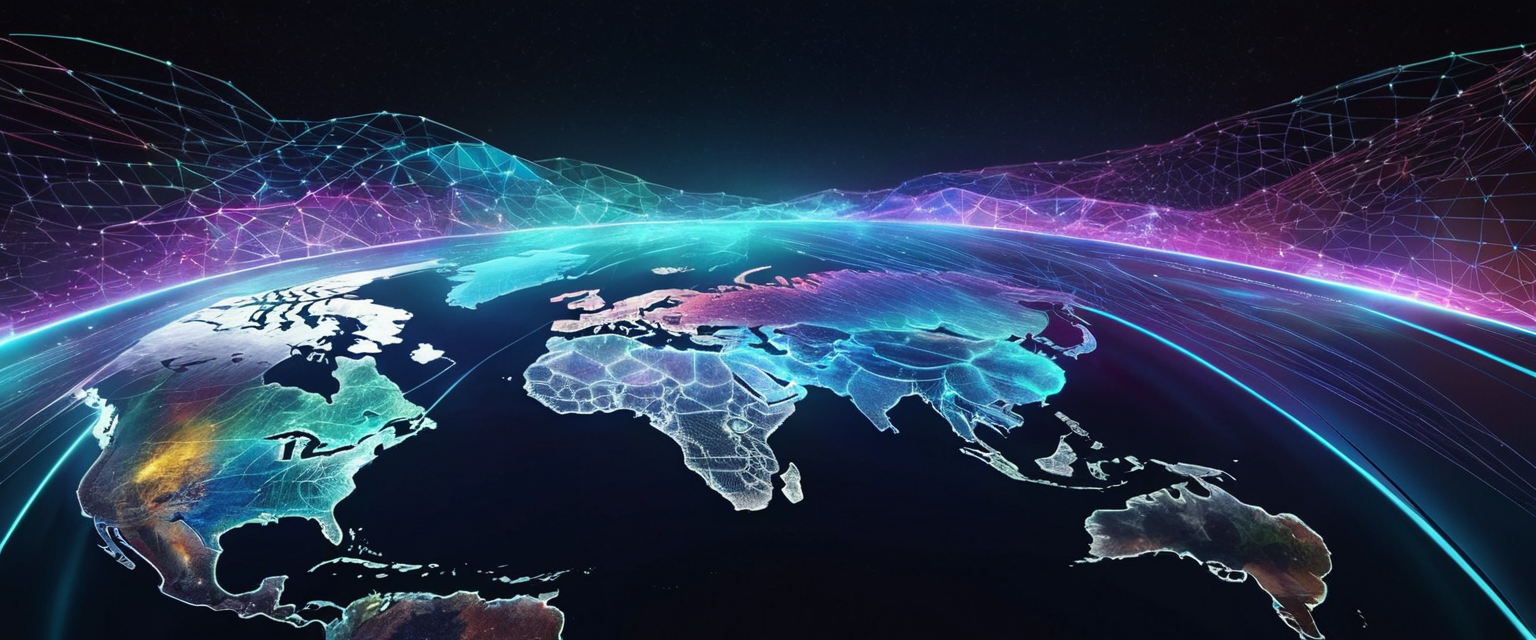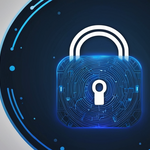
Virtual Private Networks have evolved from niche enterprise security tools into essential utilities for both individuals and organizations worldwide, serving a remarkably diverse range of purposes that extend far beyond their original conception. At their foundation, VPNs function as encrypted tunnels that facilitate secure data transmission over the internet, but the practical applications of this technology span an extraordinarily broad spectrum encompassing personal privacy, business operations, cybersecurity defense, and even human rights protection. Understanding the multifaceted purposes for which VPNs are employed requires examining how organizations and individuals leverage encryption, anonymity, and network isolation to achieve specific security, privacy, and access objectives in an increasingly interconnected digital landscape.
Fundamental Security and Data Protection
The Core Purpose of VPN Technology
The most essential use of a Virtual Private Network is to provide a secure, encrypted channel for sensitive data transmission over potentially compromised networks. When users transmit information across the internet without a VPN, their data travels in a relatively unprotected state where it can be intercepted, read, and potentially modified by malicious actors positioned anywhere along the transmission path. A VPN addresses this fundamental vulnerability by establishing what is essentially a private communication tunnel through public internet infrastructure, ensuring that all data moving between a user’s device and the destination server remains encrypted and therefore unintelligible to unauthorized parties.
The encryption that VPNs provide operates through sophisticated algorithmic processes that transform readable data, known as plaintext, into scrambled, incomprehensible information called ciphertext. The most widely adopted encryption standard in modern VPN services is AES-256 (Advanced Encryption Standard with 256-bit keys), which is considered so robust that it would theoretically require billions of years to crack using brute force computational attacks. This same encryption standard is employed by government agencies and military organizations to protect classified information, demonstrating the serious security credentials of properly configured VPN services. When a user connects to a VPN and transmits sensitive information such as banking credentials, email content, or personal documents, the encryption ensures that even if a cybercriminal manages to intercept the data packets, they will only observe meaningless encrypted content rather than usable information.
For practical protection, see our VPN protection feature.
Protecting Sensitive Information During Transmission
Organizations and individuals employ VPNs specifically to safeguard categories of data that carry significant consequences if compromised. Sensitive data such as work emails, payment information, location tagging, login credentials, and financial transaction details is constantly being transmitted across the internet as part of normal digital activity. Without protective measures like VPN encryption, this information becomes vulnerable to theft, particularly in scenarios where users connect through public networks or unsecured connections where anyone with the right tools can potentially eavesdrop. The risk is especially acute on public Wi-Fi networks at airports, hotels, coffee shops, and other locations where multiple users share the same internet connection and a single compromised user or malicious actor on that network can monitor the traffic of all connected devices.
A VPN transforms these risky network scenarios into secure communication channels by ensuring that even if an attacker gains access to the network or intercepts data packets, they cannot decipher the information without the decryption key. For businesses handling customer data, employee records, and proprietary information, this capability is not merely beneficial but often legally mandatory under various regulatory frameworks. Healthcare organizations must comply with HIPAA requirements that mandate encryption of patient health information in transit, financial institutions face Payment Card Industry Data Security Standard (PCI DSS) obligations to protect cardholder data, and organizations processing data of European residents must comply with GDPR encryption requirements. A properly implemented VPN serves as a foundational security control that helps these organizations meet these regulatory obligations while simultaneously protecting their data from criminal exploitation.
The Encryption Process and Data Protection Stages
Understanding how VPN encryption works in practice requires examining the sequential stages through which data passes from the user’s device to its destination. When a user initiates any online action—whether sending an email, accessing a website, or transferring a file—their data is broken down into smaller units called data packets that contain not only the user’s information but also essential routing details including the IP addresses of both the sender and receiver. At this initial stage, before VPN encryption is applied, the data exists in a vulnerable state where any competent attacker with access to the network can potentially read it. The VPN then applies encryption using powerful algorithms like AES-256, transforming this readable information into ciphertext that appears as meaningless gibberish to any unauthorized observer. This encrypted data is then encapsulated within a VPN tunnel—a secure “pathway” that shields the protected data from external threats as it travels across public or unsecured networks.
Once the data is encrypted and encapsulated within the VPN tunnel, it travels across the internet to the VPN provider’s server, which is often located in a different geographic region than the user. During this transmission phase, even if a cybercriminal has successfully infiltrated an Internet Exchange Point (IXP) or other network infrastructure component to monitor traffic passing through, they will only observe encrypted data packets rather than usable information. The VPN server receives these encrypted packets, decrypts them using the appropriate key, and then forwards the user’s original request to the actual destination—whether that is a website, email server, or cloud service. When the destination responds with data, the entire process reverses, with the response being encrypted by the VPN server and transmitted back through the secure tunnel to the user’s device, where the VPN client decrypts it for display. This multi-stage process ensures that from the moment data leaves a user’s device until it reaches its final destination, the information remains protected from interception and unauthorized access.
Remote Work and Business Continuity
Enabling Secure Access to Corporate Resources
One of the most critical modern applications of VPN technology is facilitating secure remote access for employees who work outside traditional corporate offices. The dramatic expansion of remote and hybrid work arrangements, accelerated by global circumstances beginning in 2020, created an urgent need for organizations to enable employees to access internal applications, databases, files, and services from anywhere while maintaining strong security protections. Without a VPN, employees working from home or while traveling would need to connect to their company’s network through the public internet, potentially exposing sensitive company data and employee activities to interception by threat actors, government surveillance, or other malicious parties. A remote access VPN creates an encrypted tunnel between each employee’s device and the company’s corporate network, allowing the employee to interact with internal resources as though they were physically present in the office while ensuring that all transmitted data—including login credentials, file transfers, and application interactions—remains protected through encryption.
This capability transforms the security profile of remote work from one of inherent vulnerability to one of reasonable protection. An employee can connect to a remote access VPN from a hotel room using public Wi-Fi, access the company’s financial databases, retrieve customer information, and work with proprietary documents with confidence that their activities and the data they are accessing remain encrypted and invisible to the hotel network operator, internet service provider, or any eavesdropper monitoring that public Wi-Fi. The flexibility that VPN-secured remote access provides has become essential to modern business operations, allowing companies to recruit talent from geographic regions far from their physical offices, enabling business continuity during natural disasters or emergencies, and providing employees with the flexibility to work from various locations without compromising security. For employers, the benefit of VPN-enabled remote work extends beyond convenience—it allows companies to maintain strong information security postures while accommodating modern workforce expectations and operational requirements.
Corporate Network Protection and Access Control
Beyond simply enabling connectivity, VPNs serve a critical access control function within corporate environments by allowing IT administrators to enforce granular permissions that determine which employees can access which resources. In a traditional corporate network architecture, a company’s IT team establishes different networks for different purposes—one network for accounting department access, another for engineering resources, perhaps another for customer relationship management systems. By implementing VPNs between these network segments and assigning employees to specific VPNs based on their role, function, and security clearance level, organizations can ensure that employees only access the data and systems necessary for their specific responsibilities. This principle of least-privileged access is a fundamental security practice that reduces the damage potential if an employee’s credentials are compromised, as the compromised account would only have access to that specific employee’s allocated resources rather than the entire corporate network.
Furthermore, VPNs enable companies to establish separate networks for different security trust levels. A company might designate one VPN for employees working with non-sensitive operational information while establishing a more restrictive VPN with additional authentication requirements for employees accessing financial data, health information, or other highly regulated information. This architectural flexibility allows organizations to implement security policies that scale with the sensitivity of the data being protected rather than requiring identical security controls for all resources. Additionally, VPNs facilitate IT administrators’ ability to monitor and audit which employees accessed which resources at which times, creating an audit trail that is essential both for detecting suspicious activity indicating a potential breach and for meeting regulatory compliance requirements.
Site-to-Site VPN for Multi-Location Organizations
Organizations that operate from multiple physical locations—whether branch offices, retail stores, regional data centers, or warehouses—require secure interconnection between these locations for normal business operations, and site-to-site VPNs serve this purpose. In such scenarios, a site-to-site VPN establishes permanent, encrypted connections between the networking equipment (routers or firewalls) at each location, creating a single virtual network that spans multiple geographic areas. Rather than requiring individual employees at branch locations to authenticate to a remote access VPN to reach corporate resources, the site-to-site VPN allows employees at branch offices to access shared resources on the corporate network transparently, as though the branch and headquarters were directly connected by a physical network cable. For example, a retail chain with hundreds of individual stores can use site-to-site VPN to allow each store’s point-of-sale systems to connect securely to the company’s central inventory database, allowing store employees to check stock, process returns, and access customer information without having to individually authenticate through a VPN client.
The economic advantages of site-to-site VPNs are substantial, particularly compared to legacy connectivity solutions. Historically, organizations would lease dedicated private circuits from telecommunications carriers—MPLS (Multiprotocol Label Switching) lines or similar technologies—to create private network connections between offices. These dedicated circuits provide predictable performance and security but are extraordinarily expensive, often costing thousands of dollars per month per site. Site-to-site VPNs achieve comparable security and increasingly comparable performance while routing traffic over standard business internet connections, reducing connectivity costs by an order of magnitude. This cost differential has made site-to-site VPN implementations economically feasible for even small businesses operating multiple locations, democratizing secure multi-site connectivity to organizations that previously could not afford dedicated private circuits. Additionally, site-to-site VPNs provide organizations with flexibility in their network architecture—they can add new branch locations, adjust connectivity policies, or change service providers without the lengthy provisioning timelines required for dedicated circuits.
Business Continuity and Disaster Recovery
VPNs play a critical role in business continuity planning and disaster recovery operations by enabling organizations to maintain essential connectivity and operations during disruptive events. When a natural disaster, cyberattack, or other emergency strikes an organization’s primary data center or office location, the ability to quickly redirect operations to backup facilities, alternate cloud regions, or emergency work-from-home arrangements can mean the difference between brief service interruption and extended outages that damage customer trust and generate significant financial losses. VPN technology facilitates this continuity by allowing authorized employees to securely connect to backup systems, data recovery resources, and alternate network facilities from any location with internet connectivity. An organization might maintain a secondary data center in a geographically distant location with critical backup systems and data, and VPN connectivity allows employees at the primary site to quickly establish connections to these backup systems in the event the primary site becomes unavailable.
Furthermore, VPNs enable organizations to implement redundant connectivity through multiple internet service providers and connection paths. Rather than depending on a single internet link at each location—which represents a critical single point of failure—organizations can establish VPN connections through multiple ISP connections with different physical routing paths, ensuring that if one connection fails, traffic can be automatically rerouted through alternate paths to maintain continuity. This redundancy can be further enhanced through SD-WAN (Software-Defined Wide Area Network) technologies that work in conjunction with VPNs to intelligently route traffic across multiple connections, detect when connections have failed or degraded, and automatically optimize path selection to maintain performance. For organizations that depend on constant network availability—financial institutions, healthcare providers, e-commerce platforms—these VPN-enabled redundancy and failover capabilities are essential components of business continuity strategies.
Privacy Protection and Anonymity Online
Masking IP Addresses and Geographic Location
One of the most immediately apparent benefits of using a VPN is that it masks a user’s real IP address and geographic location, replacing them with the IP address of the VPN server the user has connected to. Every device connected to the internet has a unique IP (Internet Protocol) address that functions essentially as a digital street address, revealing both the geographic location of that device and information about the Internet Service Provider that supplies that device’s internet connection. When a user visits a website without a VPN, the website’s servers record the visitor’s real IP address in their server logs, allowing the website to determine the visitor’s approximate location, identify the ISP providing that visitor’s internet connection, and potentially link that visitor’s activity across multiple visits to that website. Advertisers and data brokers use this IP address information extensively to track users across the internet, building detailed profiles of users’ browsing habits, interests, and online behavior that are subsequently sold to marketers for targeted advertising and other purposes.
When the same user connects through a VPN before visiting that website, the website’s servers instead record the VPN provider’s IP address rather than the user’s real IP address. From the website’s perspective, the traffic appears to originate from wherever the VPN server is physically located—perhaps from a country thousands of miles away from where the user actually is—making it extremely difficult or impossible for the website to determine the visitor’s true geographic location. This IP address masking breaks one of the primary mechanisms that advertisers and tracking companies use to correlate a user’s identity across multiple websites and build comprehensive behavioral profiles. Websites, advertisers, and other parties that might be interested in tracking a user’s online activity now see multiple different VPN IP addresses rather than a consistent user IP address, making it far more difficult to track that specific individual’s browsing patterns.
The location spoofing capability that results from IP masking also provides users with the ability to appear to be browsing from different geographic locations than where they physically are. This capability has important legitimate applications in scenarios where a user travels internationally and wants to access services that recognize their home location. For example, an American traveler in Europe who connects to a VPN server located in the United States will appear to websites to be located in the United States, allowing them to access American streaming services, banking applications, and other services that might otherwise be unavailable or might restrict functionality for users appearing to be outside the United States. Similarly, expatriates or international business travelers can use VPN servers located in their home country to maintain access to domestic services even while physically located elsewhere.
Preventing ISP Tracking and Third-Party Monitoring
Internet Service Providers occupy a uniquely privileged position in network communications—they can observe all internet traffic flowing to and from their customers’ devices, including which websites customers visit, which applications they use, and (for encrypted sites) the general patterns of their internet activity. Throughout the internet’s history, ISPs have demonstrated a concerning willingness to exploit this privileged position by collecting detailed browsing histories on their customers and selling this behavioral data to advertisers and data brokers for profit, or alternatively providing this data to government agencies in response to legal requests. Some ISPs have been caught injecting advertisements into users’ browsing sessions, redirecting users to advertising pages when they visit non-existent domains, or otherwise monetizing their privileged access to customer data.
A VPN prevents ISP tracking of user browsing activity by encrypting all traffic flowing between a user’s device and the VPN server. From the ISP’s perspective, when a user connects through a VPN, the ISP can observe that the user is connecting to a VPN provider’s server (the VPN is visible to the ISP) but cannot observe which websites the user visits, which applications they use, or what specific data they transmit through the VPN. The ISP might record that a user was connected to a VPN server between specific times, but the actual content of that user’s online activity remains invisible to the ISP due to the encryption. This capability is particularly valuable in jurisdictions where ISPs are required by law to retain and log detailed browsing histories, or where ISPs routinely sell customer behavioral data to third parties—a VPN ensures that an individual’s specific online activities remain private even from their ISP.
Protect Your Digital Life with Activate Security
Get 14 powerful security tools in one comprehensive suite. VPN, antivirus, password manager, dark web monitoring, and more.
Get Protected NowBeyond ISPs, VPNs protect users from being tracked by employers who operate network monitoring systems on workplace networks, by governmental surveillance agencies attempting to monitor citizen internet activity, and by other network operators who might seek to observe user behavior. An employee on a corporate network using a VPN would have their traffic encrypted and invisible to the corporate network’s monitoring systems, a capability that obviously has both legitimate uses (maintaining personal privacy during breaks, protecting whistleblowers) and potentially problematic uses that might violate employer policies. For journalists, activists, and dissidents in countries with oppressive regimes that seek to monitor and suppress internet freedom, VPNs provide essential protection that prevents government surveillance systems from observing their online activity and identifying them as persons of interest. Organizations like the Electronic Frontier Foundation and human rights groups explicitly recommend VPN use as a protective measure for individuals living under oppressive governments.
Maintaining Anonymity in Browsing Activity
By combining IP address masking with encryption, VPNs enable users to browse the internet with substantially increased anonymity compared to browsing without any privacy tools. A website that receives a visitor’s traffic through a VPN sees the VPN server’s IP address rather than the visitor’s real IP address, cannot readily determine the visitor’s geographic location, and cannot observe the visitor’s search queries or specific pages visited due to encryption. This anonymity is not absolute—if a user logs into a website using their personal account (Facebook, Gmail, etc.), the website immediately knows exactly who that user is regardless of VPN use, and any content the user creates or posts becomes associated with their identity. Additionally, sophisticated attackers with access to network infrastructure can potentially employ advanced techniques to correlate encrypted VPN traffic with specific individuals through traffic analysis and metadata patterns.
Nevertheless, the anonymity that VPNs provide offers substantial practical benefits for many users. Someone researching sensitive health topics can do so without the search being recorded and potentially leaked if a database is breached or sold. Activists organizing political activities in restrictive countries can discuss strategy without ISP surveillance connecting them to opposition movements. People in abusive relationships researching escape resources can access that information without their abuser being able to discover their searches through ISP records. A user concerned about price discrimination—where websites charge different prices to different users based on their geographic location, browsing history, or other factors—can browse with better anonymity, potentially receiving more consistent pricing. While VPN-enabled anonymity is not perfect or absolute, it provides a meaningful layer of privacy that protects most users from routine commercial tracking and monitoring while also offering protective capabilities for people in genuinely risky situations.

Accessing Geo-Restricted and Regional Content
Bypassing Geographic Content Limitations
A substantial proportion of internet content is subject to geographic restrictions, meaning that the content is available only to users in certain countries or regions. These geographic restrictions, commonly referred to as “geo-blocking,” exist for several reasons including licensing agreements, regulatory requirements, or deliberate business decisions to limit market access. For example, Netflix licenses different television shows and movies in different countries based on who holds the content rights in each region—a show available on Netflix in the United States might not be available on Netflix in Europe because Netflix does not hold European distribution rights to that content. Similarly, sports broadcasters often purchase regional broadcasting rights to sporting events, making live streams available only in certain geographic regions. News websites and government services sometimes restrict access based on geography to comply with local regulations or for other policy reasons.
A VPN allows users to bypass these geographic restrictions by appearing to connect from a different location than where they physically are. When a user in Europe connects through a VPN server located in the United States, the streaming service’s servers see a connection originating from the United States and therefore provide access to the American content library. This capability allows travelers to access familiar content from their home countries even while abroad, allows people in countries with limited content availability to access international media, and creates opportunities for viewing content before official release in one’s home region. From a practical perspective, a person traveling internationally who has paid for a Netflix subscription in their home country can maintain uninterrupted access to their subscription by connecting through a VPN server in their home country, ensuring they can watch shows they have started and maintaining their viewing progress.
Streaming Services and Entertainment Access
Streaming video and music services represent one of the most common and commercially significant applications of VPN technology for accessing geo-restricted content. Major streaming platforms including Netflix, Hulu, Disney+, Amazon Prime Video, BBC iPlayer, and others maintain separate content libraries for different geographic regions due to licensing and regulatory constraints. A user who moves to a different country discovers that their subscription, while technically valid, provides access only to that country’s content library, which often is far smaller or contains different content than their home country’s library. For someone who has accumulated a lengthy watchlist and is partway through multiple series, this sudden content restriction can be frustrating. By using a VPN to connect through a server in their home country, the user can continue accessing their usual content library and complete the series and shows they were watching.
For sports entertainment specifically, geographic restrictions can be particularly frustrating because sporting events often are sold on a regional basis, with different broadcasters holding rights in different regions. A soccer fan who relocates internationally might find that the streaming service they use in their new location does not broadcast their favorite team’s matches due to those rights being held by a different broadcaster in that region. A VPN allows such fans to connect through a server in their home country and access their home broadcaster’s streaming service, maintaining access to their team’s matches even while living abroad. Music streaming services like Spotify, Apple Music, and others similarly maintain region-specific content due to licensing constraints—some songs or albums might be available in one region but not others. VPN technology allows music listeners to access broader catalogs by connecting to servers in regions where additional content is available.
International Travel and Content Access
VPNs have become essential tools for international travelers seeking to maintain access to their home country’s digital services and content. An American executive traveling on business to Southeast Asia may need to check financial accounts through their American bank’s website, access American streaming services, or use American-based productivity tools. Many of these services restrict access or limit functionality for users appearing to be outside the United States for regulatory compliance, fraud prevention, or licensing reasons. By connecting through a VPN server in the United States, the traveler can access these services as though they were physically present in America, maintaining uninterrupted access to essential services and familiar content even while traveling. Conversely, if a foreign national travels to the United States and wants to continue accessing services from their home country that restrict access to users outside that country’s borders, a VPN server located in their home country allows them to do so.
The travel use case for VPNs extends beyond mere convenience to encompass genuine security and functionality requirements. A traveler using public Wi-Fi in airports, hotels, and cafes while connected through a VPN gains the protection of encryption and IP address masking that reduces their vulnerability to the heightened security risks of public networks. Moreover, some banking and financial institutions have security policies that block login attempts from users appearing to be in unexpected geographic locations as a fraud prevention measure. A traveler accessing their bank account from a different country might trigger such a security block unless they are connected through a VPN server in their home country, preventing them from accessing their accounts during travel. Airlines, travel booking systems, and hotel chains also sometimes employ price discrimination algorithms that charge different prices to users based on their apparent geographic location—a traveler can potentially access better pricing by using a VPN to appear to be browsing from a different location, though such practices raise ethical questions about bypassing intended pricing structures.
Defense Against Cyber Threats and Attacks
Protection from Hackers and Data Interception
VPNs provide substantial protection against multiple categories of cyberattacks and malicious activity by virtue of their encryption and network architecture. One of the most pervasive threats on the internet is posed by hackers who attempt to intercept unencrypted internet traffic to steal login credentials, financial information, personal data, and other valuable information. This interception can occur through various mechanisms including compromised networks, network wiretapping, traffic analysis, or man-in-the-middle attacks where a malicious actor positions themselves between a user and the destination server to observe all traffic passing through. When a user connects through a VPN, all their traffic is encrypted before leaving their device, making it unintelligible to any attacker who attempts to intercept it. Even if a hacker successfully captures encrypted data packets, without the decryption key (which is protected and never transmitted over the network) the packets appear as meaningless gibberish rather than usable information.
Public Wi-Fi networks represent particularly high-risk environments for unprotected browsing because anyone connected to the same network can potentially employ packet-sniffing tools to capture other users’ traffic. A user checking email, accessing social media, or viewing sensitive documents on public Wi-Fi without a VPN exposes all this activity to potential observation by anyone else on that network who possesses or has downloaded the relatively inexpensive and easily available packet-sniffing software. With a VPN, all traffic is encrypted before it ever travels over the public Wi-Fi connection, rendering any packet sniffing completely ineffective because captured packets are encrypted and unreadable. For this reason, using a VPN on public Wi-Fi has become a widely recommended security practice for protecting against the heightened risks of these shared networks. Business travelers, remote workers, and anyone accessing sensitive information while away from secure home or office networks should employ a VPN specifically to protect against the casual and sophisticated attacks that target public Wi-Fi users.
DDoS Attack Mitigation
A Distributed Denial of Service (DDoS) attack is a category of cyberattack where an attacker or group of attackers floods a target device or network with massive volumes of traffic with the goal of overwhelming the target’s capacity and causing service disruption. In the context of online gaming, malicious players sometimes launch DDoS attacks against opponents’ home internet connections with the goal of forcing the opponent offline and winning by default. Without protective measures, a gamer whose home network is targeted by a DDoS attack would have their internet connection overwhelmed and become unable to play or use any internet services. A VPN provides protection against such attacks by masking the gamer’s real IP address and replacing it with the VPN server’s IP address. If an attacker attempts to launch a DDoS attack against what they believe is the victim’s IP address, they are actually targeting the VPN server’s IP address instead. While the VPN server itself might experience degraded performance due to the attack traffic, the victim’s home internet connection remains unaffected and fully operational. Major VPN providers that cater to gamers further protect against DDoS attacks by implementing DDoS protection systems on their servers that detect and mitigate incoming attack traffic before it can cause significant service disruption.
Protection Against Man-in-the-Middle Attacks
A man-in-the-middle (MITM) attack is a sophisticated cyberattack technique where an attacker secretly positions themselves in the communication path between two parties, allowing them to eavesdrop on communications, steal information being exchanged, or even modify communications before forwarding them to the intended recipient. A common scenario occurs when a user connects to a malicious or compromised Wi-Fi hotspot that appears to be a legitimate network (such as a coffee shop’s free Wi-Fi) but is actually controlled by an attacker. The attacker can configure the malicious network such that all traffic flowing through it passes through their computer, allowing them to observe everything the user does—emails sent, websites visited, login credentials entered, files downloaded. More sophisticated MITM attacks involve network-level compromise of internet infrastructure, with attackers at Internet Exchange Points or similar critical infrastructure attempting to intercept and manipulate traffic on a large scale.
VPNs prevent MITM attacks by encrypting all traffic end-to-end between the user’s device and the VPN server, ensuring that even if an attacker has successfully positioned themselves between the user and the VPN server, they can only observe encrypted data that is meaningless without the decryption key. A user connecting to a malicious Wi-Fi hotspot through a VPN has all their traffic encrypted before it ever leaves their device, meaning that even though the attacker controls the network that traffic passes through, they cannot read or modify that traffic. The only information the attacker can observe is that a user is connected to a VPN, but the specific websites visited, data transmitted, or applications used remain completely invisible. This protection against MITM attacks makes VPN use particularly critical for anyone accessing sensitive information over public or untrusted networks.
Public Wi-Fi Security and Online Banking Protection
Public Wi-Fi networks present a particularly complex security scenario because they provide internet connectivity without requiring any authentication beyond agreeing to terms of service, making them convenient for travelers and remote workers but potentially dangerous for security-conscious users. The risks of public Wi-Fi include not only potential eavesdropping by other network users but also compromised routers, malware-infected networks, rogue access points that mimic legitimate networks to trick users into connecting, and network operators who monitor or log all traffic passing through their networks. For users who need to conduct banking, check financial accounts, process online transactions, or access other sensitive systems while away from secure home networks, VPN use becomes nearly essential.
The specific use of VPNs for online banking addresses multiple categories of risk simultaneously. Banking credentials are among the most valuable pieces of information a cybercriminal can obtain—possession of login credentials allows an attacker to access an account, steal funds, modify account settings, or commit fraud using the victim’s identity. A user checking their bank account on public Wi-Fi without a VPN exposes their credentials to potential interception by network operators or attackers. Additionally, banking sessions often involve viewing sensitive information such as account balances, transaction history, and personal financial information—information that should remain private from ISP monitoring, network operators, and other parties. The VPN provides encryption that protects these credentials and sensitive financial information from observation. Some banking institutions further benefit from VPN use through its ability to help users appear to be accessing their accounts from their home country, which can prevent security blocks that some banks implement to detect suspicious account access from unexpected geographic locations.
Circumventing Censorship and Surveillance
Bypassing Government Restrictions and Censorship
In numerous countries around the world, governments maintain extensive systems of internet censorship and surveillance designed to prevent citizens from accessing certain websites, services, and information, and to monitor citizens’ online activities. Countries including China, Russia, Iran, North Korea, and others maintain “Great Firewall” systems that block access to websites the government deems objectionable, control internet traffic to monitor political activity, and punish internet use deemed to violate government preferences. These censorship systems make certain websites inaccessible, restrict access to international news sources, block communication platforms used for organizing political activity, and prevent access to information about human rights or topics sensitive to the government. Citizens in such countries who want to access blocked websites or maintain privacy from government surveillance employ VPNs as essential tools for internet freedom.
A VPN allows users in censored countries to bypass government firewalls by connecting to VPN servers located outside the country in jurisdictions without such censorship. Once connected through such a VPN, the user’s internet traffic exits the country’s network through the VPN server’s location rather than through the government’s network infrastructure, effectively bypassing the government’s censorship and monitoring systems. To a user in a censored country, it appears that they are accessing the internet from the location of the VPN server (perhaps a distant country) rather than from within their home country, allowing them to access websites and services that would otherwise be blocked by the government’s firewall. Major VPN providers understand the importance of this use case and have implemented technologies specifically designed to help users in heavily censored countries access VPN services. Some providers have developed obfuscated protocols that disguise VPN traffic to appear as normal internet traffic, making it difficult for governments to detect and block VPN usage. Others employ strategies of regularly changing server IP addresses and employing multiple layers of encryption to maintain accessibility even as governments attempt to block VPNs.
The importance of VPN technology for internet freedom and human rights cannot be overstated. Dissidents, political activists, and ordinary citizens living under oppressive regimes depend on VPNs to communicate without government surveillance, research political topics and human rights information, access news sources not approved by the government, and organize political activity. For LGBTQ+ individuals in countries where homosexuality is criminalized or severely stigmatized, VPNs provide access to community resources and support services without government surveillance detecting their sexual orientation. For victims of domestic violence seeking information and resources to escape their situations, VPNs provide confidential access to support services and information without abusive partners being able to discover their activities through monitoring network traffic. Organizations dedicated to human rights and internet freedom, including Amnesty International, the Electronic Frontier Foundation, and the Tor Project, emphasize VPN use as an essential tool for protecting vulnerable populations in countries without strong legal protections.
Support for Journalists and Whistleblowers
Journalists investigating sensitive stories and whistleblowers exposing wrongdoing face unique security challenges—their online communications and research could expose sources, reveal the subjects of investigations before publication, or identify them as threats to powerful actors they are investigating. When a journalist researches a story about government corruption, investigates criminal activity by powerful companies, or documents human rights abuses, their research activities themselves become dangerous information that could expose their sources if discovered. VPNs provide essential protection by encrypting a journalist’s online activity and masking their IP address, making it far more difficult for governments or criminal actors to monitor what they are researching or determine who their sources might be. By using a VPN, a journalist can research sensitive topics without their ISP, the government, or other surveillance systems being able to determine what specific information they are accessing.
Whistleblowers face even more extreme risks—by exposing wrongdoing through leaked documents or communications, a whistleblower often faces retaliation from powerful actors who would go to great lengths to identify and punish the source of the leak. VPN technology allows whistleblowers to communicate with journalists and submit documents through secure channels while obscuring their location and identity to the extent possible. Secure document submission systems used by major newsrooms to receive leaks from whistleblowers often require VPN or Tor access specifically to protect the anonymity of the whistleblower. The combination of a VPN and other privacy tools like the Tor Browser and encrypted messaging applications creates the layered protection that whistleblowers need to expose wrongdoing without exposing themselves to identification and retribution. Without VPN and similar privacy technologies, the fundamental role of whistleblowers in exposing corruption and wrongdoing would be far more dangerous, potentially eliminating this critical accountability mechanism in many contexts.
Internet Freedom and Activism
VPNs enable citizens in countries with heavy internet censorship and surveillance to maintain internet freedom and participate in activist activities. Activists organizing political movements, documenting government abuses, mobilizing for social change, or advocating for marginalized groups need to communicate and organize without government surveillance systems identifying them and allowing authorities to preemptively arrest or suppress them. VPN technology allows activists to communicate through messaging apps, coordinate activities through websites and social media platforms, and research information about the causes they support without the government surveillance systems that monitor internet activity being able to identify them or disrupt their activities. For young people in oppressive countries seeking information and community around topics like sexual orientation or gender identity that are stigmatized or criminalized in their society, VPNs provide confidential access to information and support communities that would otherwise be inaccessible.

Avoiding ISP Throttling and Performance Optimization
Bandwidth and Data Throttling Prevention
Internet Service Providers engage in a practice known as bandwidth throttling, or data throttling, where they intentionally slow internet speeds for certain users or types of internet activity. ISPs engage in throttling for multiple stated reasons including managing network congestion during peak usage times, limiting the bandwidth consumed by users who have reached data caps, prioritizing certain types of traffic, or deliberately targeting specific websites or applications that the ISP views as competitors or that generate support costs. Regardless of the ISP’s motivation, throttling has the effect of degrading the user’s internet experience by reducing speeds for affected activities, potentially making streaming, gaming, videoconferencing, or other bandwidth-intensive activities unusable. A user might experience full-speed internet while browsing websites but dramatically reduced speeds when attempting to stream video—a differentiation that often results from ISP throttling of streaming traffic.
A VPN prevents ISP throttling in scenarios where the throttling is based on the ISP observing what websites or applications the user is accessing. Since the VPN encrypts all traffic, the ISP cannot observe which websites the user visits or which applications they use—from the ISP’s perspective, they only see encrypted traffic flowing to a VPN provider. If the ISP cannot determine that a user is streaming video, accessing torrent applications, or using other bandwidth-intensive or throttle-prone applications, they cannot throttle that specific application traffic. A user might still experience throttling if they have reached a data cap (because the ISP can observe the volume of traffic even if encrypted) or if the ISP throttles all traffic during peak times (because the ISP could theoretically throttle all connections equally), but application-specific throttling becomes impossible when the ISP cannot identify which applications are being used. For users in regions where ISPs routinely throttle streaming services to prioritize their own competing services, a VPN can restore full-speed streaming access by preventing the ISP from identifying streaming traffic.
Network Optimization and Efficiency
Beyond preventing throttling, VPNs can contribute to overall network efficiency and performance optimization through several mechanisms. Some VPN providers implement traffic optimization technologies that improve the efficiency of data transmission and reduce latency, allowing for better performance than unoptimized direct connections. These optimization technologies might include traffic compression, intelligent path selection that routes traffic through faster network paths, or load balancing that distributes traffic across multiple servers to prevent any single server from becoming bottlenecked. For users on networks with poor routing or suboptimal connectivity to certain destinations, a VPN that employs such optimization techniques might actually provide better performance than a direct unencrypted connection. A user in one geographic region attempting to access a service hosted in another region might find that a VPN route to the destination offers lower latency and higher throughput than their direct internet route due to better path optimization.
Additionally, modern VPN technologies have become increasingly efficient in their resource consumption, with newer protocols like WireGuard and optimized implementations of OpenVPN consuming fewer CPU cycles and bandwidth than earlier VPN implementations. This improved efficiency means that for many users, the performance cost of using a VPN has become negligible—speeds might be reduced by only a few percentage points compared to unencrypted connections, far less than the severe speed reductions that older VPN implementations would impose. For users concerned about battery life on mobile devices, more efficient VPN protocols mean that VPN usage consumes less additional battery power than it would with older, less optimized implementations. This improvement in VPN efficiency has made VPN use practical as a constant background security service rather than something to be enabled only when accessing sensitive information, allowing users to benefit from continuous protection without notable performance degradation.
Specialized and Niche Applications
Gaming with DDoS Protection
Online multiplayer gaming represents a specialized use case where VPNs provide important security benefits beyond their general encryption and privacy functions. Competitive online gamers are vulnerable to DDoS attacks launched by malicious opponents who attempt to force the victim offline and win by eliminating them from the game or gaining an advantage through their disconnection. A gamer whose real IP address is known can be targeted with a DDoS attack that floods their connection with traffic, overwhelming their home internet connection and forcing them offline while the attacker remains online and wins the match. VPN use masks the gamer’s real IP address and replaces it with the VPN server’s IP address, meaning that even if an opponent discovers an IP address to attack, they would be attacking the VPN server’s address rather than the gamer’s home connection. Major VPN providers that serve gamers implement infrastructure specifically designed to handle and mitigate DDoS attack traffic, ensuring that even when gaming traffic passes through a VPN server that is being targeted by an attack, the protection systems can absorb the attack traffic without affecting the gamer’s connection.
Beyond DDoS protection, VPNs offer additional benefits to gamers through their ability to bypass geographic restrictions on games and game servers. Some gaming titles are released on different dates in different regions, and some games or specific game servers are restricted to certain geographic areas. A gamer using a VPN can connect to game servers in different regions, allowing them to play on servers that would otherwise be geographically restricted, or access games before their official release in their home region. VPN use also protects gamers’ privacy and security on public Wi-Fi networks if they game while traveling, and can protect them from ISP throttling that some ISPs apply to gaming traffic.
Secure File Sharing and Torrenting
File sharing through peer-to-peer (P2P) protocols and torrenting systems requires particular security and privacy considerations because these technologies make a user’s IP address visible to all other users participating in sharing that file. When a user downloads a file through a torrent client without a VPN, their real IP address is visible to every other person downloading the same file, as well as to copyright enforcement systems and other parties monitoring torrent traffic. This visibility creates multiple risks including the possibility that copyright enforcement agencies will identify the user’s IP address and send threatening notices or pursue legal action, that other participants in the P2P network might target the user with malware, or that ISPs will identify the user as engaging in torrenting and apply throttling or take other restrictive measures.
A VPN protects torrent users by masking their real IP address and replacing it with the VPN server’s IP address. To other users in the torrent swarm and to monitoring systems, it appears that the torrent traffic originates from the VPN provider’s IP address rather than from the individual user’s home internet connection. This masking prevents copyright enforcement systems from identifying the individual user, prevents ISPs from directly associating torrenting activity with the user’s real IP address, and prevents other malicious P2P participants from targeting the user’s specific internet connection. For legitimate file sharing and distribution purposes (open source software distributions, large file transfers, etc.), VPN use while torrenting allows users to share files without exposing their real IP address to the swarm. Many VPN providers explicitly allow and support P2P traffic on their networks, understanding the important legitimate uses of P2P file sharing technology.
Online Banking and Financial Transactions
Financial institutions and online payment systems handle extremely sensitive information and represent high-value targets for cybercriminals attempting to steal funds or commit fraud. When a user accesses their bank account or conducts financial transactions, they transmit login credentials, account information, transaction details, and personal financial information—data of extreme value if compromised. VPN protection ensures that this sensitive financial information is encrypted during transmission, making it far more difficult for cybercriminals to intercept and exploit. A user conducting banking transactions on public Wi-Fi without a VPN exposes their credentials and transaction details to potential interception; the same user with a VPN has all this traffic encrypted and protected.
The fintech industry has specifically recognized the importance of VPNs to financial security, and major financial institutions and fintech companies have integrated VPN use into their security strategies. VPN technology helps fintech companies secure customer data in transit, implement secure access to their services, and maintain compliance with regulatory frameworks like PCI-DSS that mandate encryption of payment card data. For users accessing financial accounts or conducting transactions while traveling internationally, a VPN can help prevent security blocks that some financial institutions implement to prevent fraud—if a bank detects an account login attempt from an unexpected geographic location, it might block the login as a suspected fraudulent access attempt. A traveler using a VPN to connect through a server in their home country can make it appear to the bank that they are accessing the account from their home location, preventing such security blocks. VPN technology has thus become integral to secure financial services delivery in an era where users access accounts from diverse locations and increasingly conduct sensitive transactions through internet connections outside their home networks.
Specialized Fintech Applications
Beyond general financial account access, VPNs play increasingly sophisticated roles in fintech security and operations. As financial technology becomes more distributed and relies increasingly on cloud infrastructure and internet connectivity, maintaining encrypted and private communication channels between financial systems becomes critical. VPN technology enables secure communication between distributed fintech systems, protects data in transit between fintech platforms and users, and enables compliance with international data protection regulations that require encryption in transit. Advanced VPN technologies that employ multi-server routing—routing traffic through multiple servers in sequence rather than a single VPN server—provide additional security for financial transactions by making it substantially more difficult for any single compromised system or surveillance point to observe the complete transaction details.
Limitations and Considerations
What VPNs Cannot Do
Despite their substantial protective capabilities, it is important to understand the significant limitations of VPN technology and what VPNs cannot protect against. A VPN cannot protect a user’s login information if that user falls victim to a phishing attack and voluntarily provides their credentials to an attacker impersonating a legitimate service. A VPN cannot prevent malware infections that result from the user downloading malicious software or visiting compromised websites that exploit browser vulnerabilities. A VPN cannot protect against user errors, social engineering attacks that trick a user into revealing sensitive information, or the compromised security of an endpoint device (a user’s computer, phone, or tablet). If a user’s personal computer is compromised with malware that logs keystrokes or takes screenshots, a VPN cannot prevent that malware from capturing the user’s passwords and sensitive information.
Additionally, VPN use does not prevent websites from tracking a user if the user logs into a personal account on that website. When a user logs into Facebook using their personal account, Facebook knows exactly who that user is regardless of VPN use, because the user has explicitly identified themselves by logging in with their personal credentials. Any content a user creates, posts, or accesses while logged into a personal account becomes associated with that user’s identity on that platform, VPN or not. VPNs also cannot prevent all forms of tracking—advanced attackers with sophisticated surveillance capabilities might employ traffic analysis techniques to correlate encrypted VPN traffic patterns with specific individuals, making some degree of de-anonymization possible even with VPN use. VPNs do not prevent websites from setting cookies that track a user’s activities on their own website, though the cookies won’t follow the user to other websites if the user is using different VPN IP addresses on different sites. Users seeking true comprehensive privacy must combine VPN use with additional privacy measures including use of privacy-focused browsers, disabling cookies and tracking technologies, using privacy-focused search engines, and maintaining general security hygiene practices.
Performance Trade-offs and Considerations
Using a VPN inherently introduces some performance trade-offs that users should understand when deciding whether to employ VPN protection. All data transmitted through a VPN must be encrypted before transmission and decrypted upon receipt, a process that requires computational resources from the user’s device and introduces some latency into network communications. Additionally, data must travel a longer distance through the network path, going from the user’s device to the VPN server rather than directly to the destination, which can introduce additional latency. For most users with modern devices and fast internet connections, these performance impacts are negligible or unnoticed—modern VPN protocols and implementations are highly optimized, and the speed reduction might be only a few percentage points. However, for users on slower internet connections, older devices with limited processing power, or users accessing time-sensitive applications like online games or video calls, VPN use might introduce noticeable speed reduction.
Some VPN services further manage performance through split tunneling features that allow users to configure certain applications or websites to bypass the VPN and connect directly, while other applications remain protected through the VPN. This selective protection allows a user to maintain VPN protection for sensitive activities while avoiding the performance impact for non-sensitive activities that would not benefit from VPN protection. However, split tunneling introduces complexity and potential security risks if misconfigured—a user might inadvertently exclude sensitive traffic from VPN protection while believing it is protected.
Trustworthiness of VPN Providers
Because a VPN provider controls the servers through which all of a user’s traffic passes, the VPN provider is in a theoretically privileged position to monitor a user’s online activity, collect behavioral data, or share that data with third parties. While a trustworthy VPN provider with strong privacy commitments and no-logs policies will not engage in such monitoring, less reputable VPN providers might do exactly that. Some free VPN services have been discovered logging user activity, injecting advertisements, selling user data to advertisers, or otherwise monetizing user data—behaviors that completely undermine the privacy protection that the VPN is supposedly providing. Studies have found that approximately 88% of free VPNs examined leaked identifiable data during live use, including IP addresses and other identifying information.
Users selecting a VPN provider must therefore carefully evaluate the provider’s privacy policies, look for independent security audits that verify the provider’s no-logs claims, consider the provider’s jurisdiction and whether that jurisdiction’s laws might compel the provider to log data or share it with governments. Reputable commercial VPN providers that have undergone independent security audits confirming their privacy claims, that maintain transparent privacy policies, and that are headquartered in jurisdictions with strong privacy protections and no mandatory data retention laws are generally more trustworthy than unknown free VPN services. Users concerned about being able to trust a VPN provider should look for providers that have published transparent reports demonstrating that they have received no government data requests, have undergone independent security audits by reputable security researchers, and have demonstrated a track record of maintaining user privacy.
Complexity of Setup and Configuration
Configuring a VPN on an individual device or throughout an organizational network can involve technical complexity, particularly for users lacking technical expertise or for organizations implementing enterprise-scale VPN deployments. Setting up a VPN incorrectly can result in information leaks where data is transmitted outside the VPN tunnel due to misconfiguration, potentially exposing information that the user believed was protected. This risk is particularly serious for organizations deploying VPN systems, where misconfigured VPN settings might leave organizational data vulnerable despite the organization’s intention to protect it. Proper VPN configuration requires understanding of network protocols, encryption standards, access control policies, and related technical concepts that many users do not possess. Organizations deploying VPNs must ensure proper configuration through careful planning, testing, and potentially engagement of qualified security professionals. Individual users can reduce this complexity by using well-designed VPN applications that automate configuration and provide reasonable defaults, but even these applications require users to understand basic concepts like choosing appropriate VPN protocols and understanding privacy implications of different VPN providers.
Unlocking VPN’s Full Potential
Virtual Private Networks serve a remarkably broad and essential range of functions in contemporary digital life, extending far beyond their original conception as enterprise security tools to encompass applications in personal privacy, international access, business operations, cybersecurity defense, and human rights protection. At their core, VPNs enable encrypted, secure transmission of data across otherwise untrusted networks while simultaneously providing anonymity through IP address masking and location spoofing. This combination of capabilities allows individuals to protect sensitive information from interception, conduct banking and financial transactions safely, browse privately without ISP monitoring, access geographically restricted content, and maintain internet freedom in censored regions.
For business and organizational contexts, VPNs have become essential infrastructure enabling secure remote work, supporting business continuity and disaster recovery, facilitating secure communication between geographic locations, and enabling organizations to meet regulatory compliance requirements mandating data encryption in transit. The widespread adoption of remote and hybrid work arrangements has made VPN technology practically mandatory for organizations seeking to maintain productivity while protecting sensitive corporate and customer data. Meanwhile, for journalists, activists, and whistleblowers in oppressive regimes, VPN technology has become literally vital—providing protection that enables these individuals to expose wrongdoing, organize political activity, and access information that might otherwise be denied to them through government censorship.
However, VPN users and organizations must also understand the technology’s limitations and exercise appropriate judgment about when VPN protection is necessary and appropriate. VPNs cannot protect against all categories of threats, cannot provide absolute anonymity against determined and sophisticated adversaries with access to advanced surveillance capabilities, and require careful configuration to avoid undermining their protective benefits through misconfiguration. VPN provider trustworthiness represents a critical consideration—selecting reputable providers with verified privacy claims and no-logs policies is essential to ensuring that the privacy protection the VPN provides is genuine rather than illusory. As digital threats continue to evolve and internet surveillance and censorship persist as significant challenges globally, VPN technology will likely continue growing in importance as an essential tool for security, privacy, and internet freedom for individuals and organizations alike.






